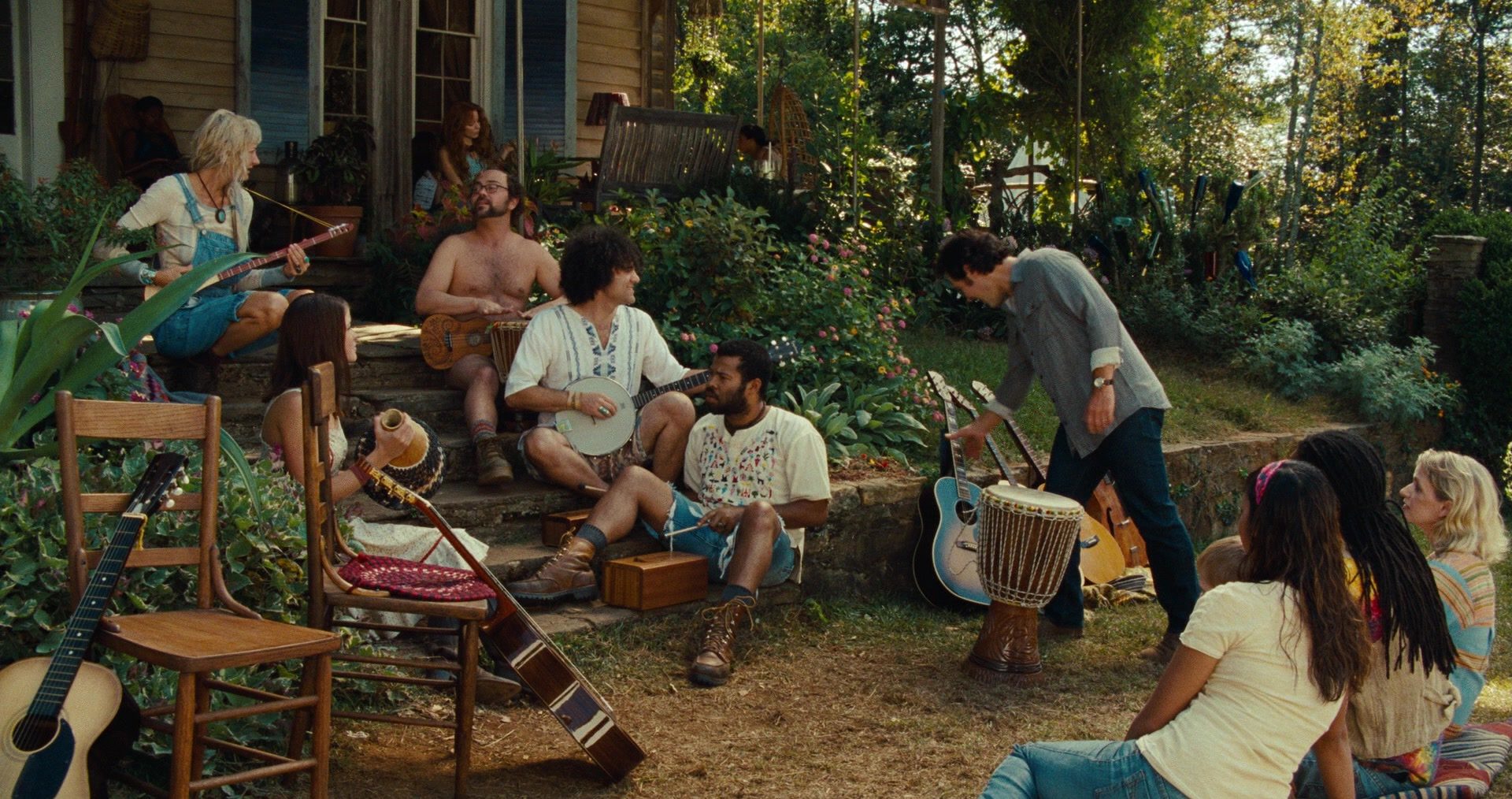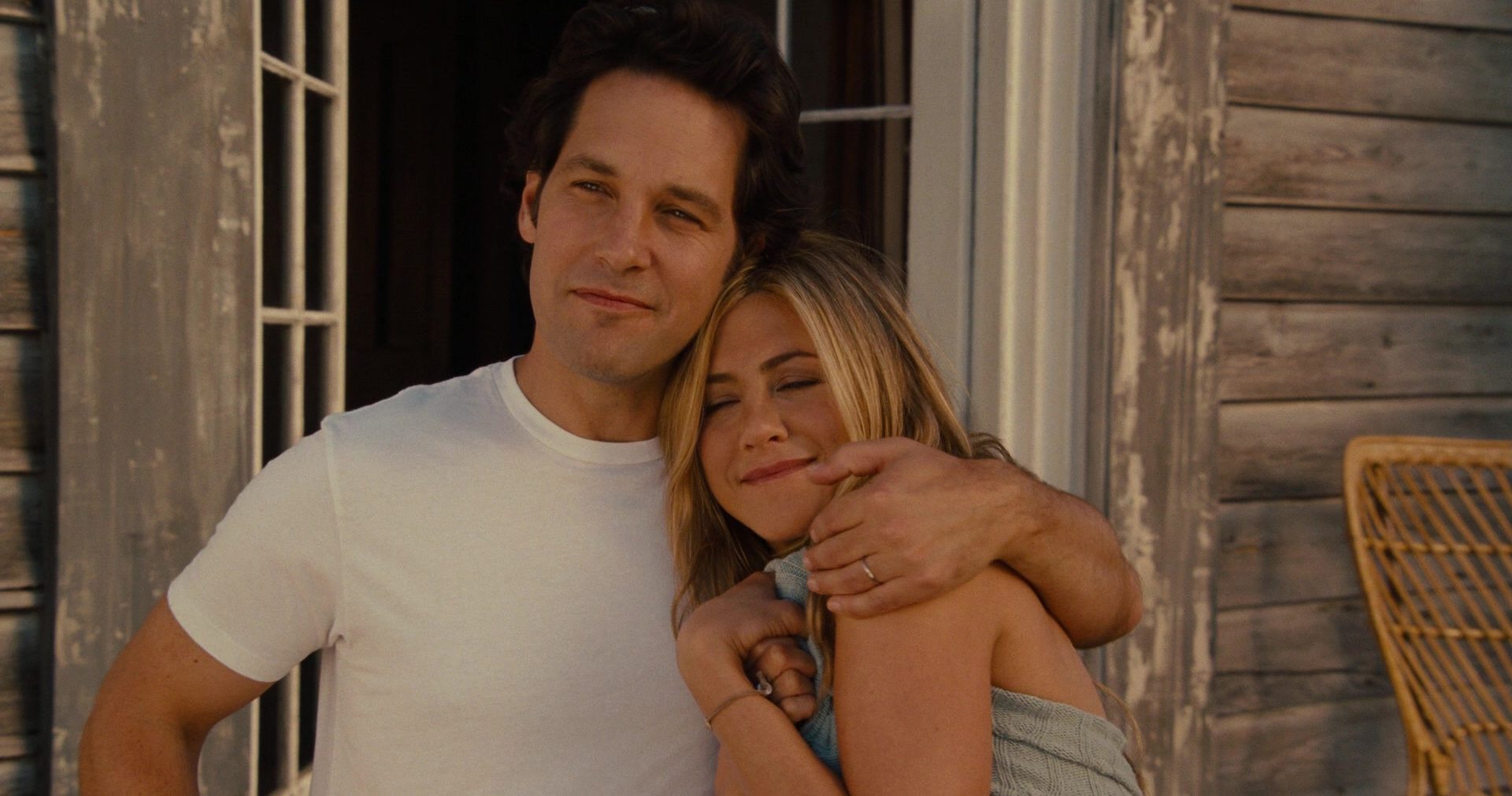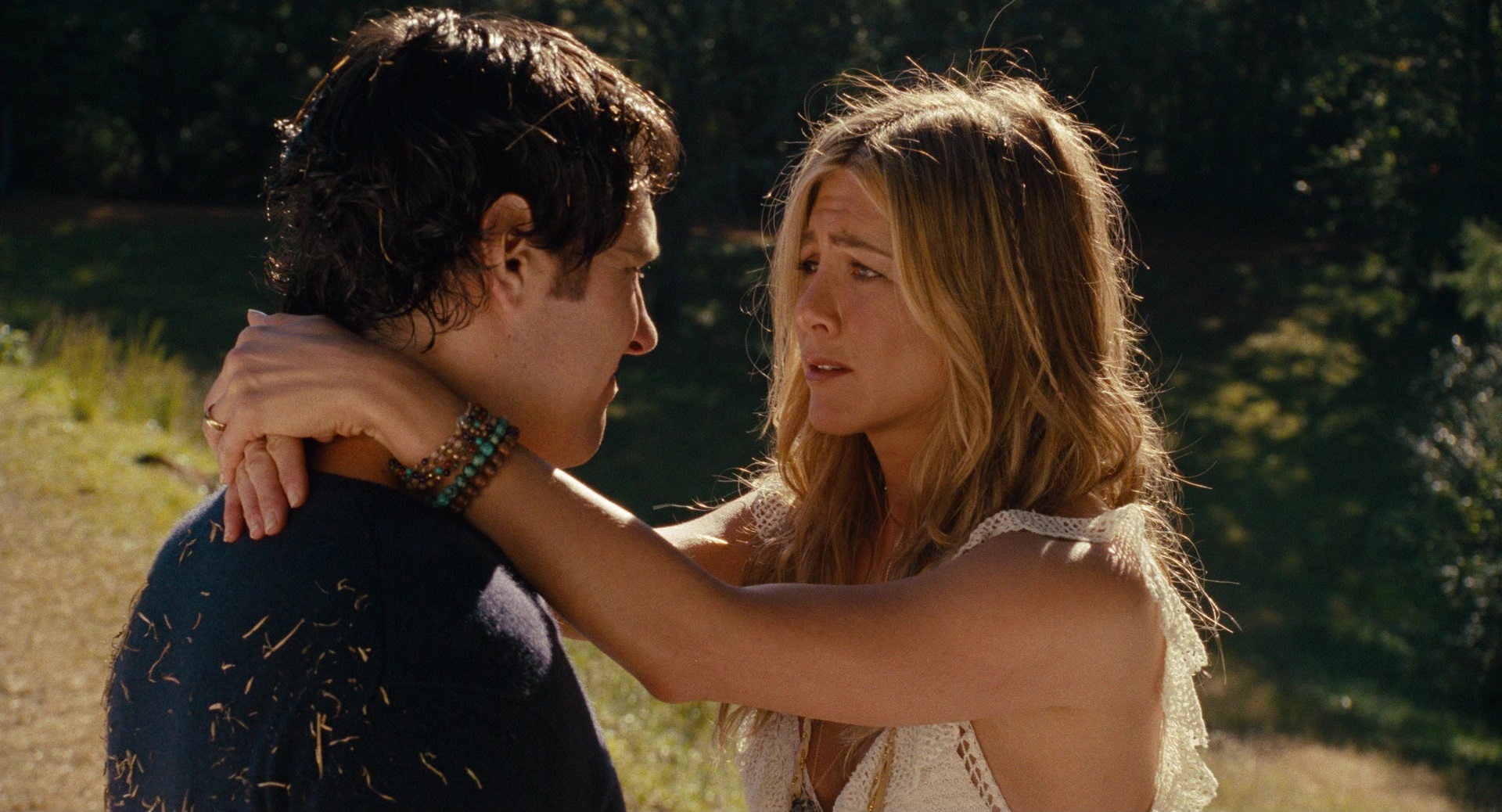Directed by David Wain, ‘Wanderlust’ is a hilarious tale of working-class New Yorkers exploring possibilities for better or worse. The 2012 film brings its audience along on a journey following a young couple, Linda and George, from New York. In an alarming turn of events, the duo lose their employment and are forced to move to Atlanta, where George’s elder brother promises to provide George with a job in his business. On their way there, they stop for a night at a bed and breakfast. This B&B, however, isn’t what it seems and is revealed to be actually a hippie commune.
George and Linda, initially unwilling, partake in the commune’s evening gathering, in which they thoroughly enjoy themselves until they head to their destination. Due to an argument between the brothers, George and Linda decide to return to the commune for a couple of weeks, where they are welcomed with open arms. During this time, Linda believes this is her true home, while George struggles to cope with the hippies’ alternate lifestyle. The film talks about going beyond one’s comfort zone in search of something that could turn out to be much more meaningful and entices the audience to hop on a fun journey that’s equipped with a bunch of laughs and a whole lot of love.
Wanderlust is a Fictional Tale that Loosely Takes Inspiration from Reality
‘Wanderlust’ is not based on a true story, but the narrative contains elements inspired by real life. While many may believe that the incidents in the movie could happen in reality, the comedy film is purely a fictional tale conceived by David Wain and Ken Marino. However, the film features many inspirations drawn from reality. For instance, the commune in the film, called Elysium, has been inspired by the numerous hippie communes that currently exist around the world. Albeit not as exaggerated in the film, these real-life communes share likenesses with Elysium based on the way they function and each member’s responsibilities.

The director did reveal that the initial setting of the film was about a commune, from which he began putting together ideas. Elaborating on the conception of the idea for the narrative, David told Collider, “I think it started with the idea of doing something about a commune. And then, we immediately said, ‘Okay, so then how about people like ourselves that find themselves in the commune?’ We figured out why, and then went from there. It was definitely a process. We worked on the script a long time, and kept changing and developing it, once we had the cast involved, during shooting, and throughout the editing as well.”
While not directly inspired by any real-life communes, Wain’s depiction of it was garnered through interviews with individuals who lived in communities like Elysium. With this information, he created the comedic-centric commune we see in the movie. Apart from Elysium, several other elements of the film have been inspired by real-life scenarios. One such element is the efforts of a young couple to purchase an apartment in the bustling New York metropolitan area, which is very much a real-life struggle. At the start of the film, Linda and George are on the verge of purchasing a micro-loft apartment, which they eventually do.

The broker convinces them that it is a good investment, despite its steep price and small size, hinting that it would still be a viable investment during a recession. Studio apartments in New York rent out from between $3500 to $6500, just for starters, ranging from 400 square feet to as small as 80. There are plenty that cost much more. In terms of purchasing such an apartment, prices start at around $400,000 and could reach as high as $3 million. It’s safe to say those prices are, most definitely, steep. Wain’s depiction of the struggles of working-class New Yorkers is adequately portrayed through the characters of Linda and George and their situation.
A long-time New Yorker himself, Wain raised two children with his wife in a small apartment similar to the one that appears in the film. He has revealed that the setting is inspired by his own experiences as a New York city dweller. In a conversation with New York Times, the director quipped, “That whole setup is right out of our experiences. The only big difference, luckily, at the moment, is that I have not lost my income. So far.” This film was an outlet for him to express his recession woes and the particular humor that comes with it. Passing lines such as, “in this economy…” now make more sense.
The film ends on a happy note for both Linda and George, as they finally find a true sense of belonging within each other and their work. Many of the scenarios and events in the film have been completely fabricated for fiction by director David Wain, but likewise, he has also been able to add various elements of his own experiences and philosophies into ‘Wanderlust.’ This doesn’t make ‘Wanderlust’ a true story, but its roots are definitely steeped in reality.
Read More: Best Comedy Movies on Paramount+


You must be logged in to post a comment.